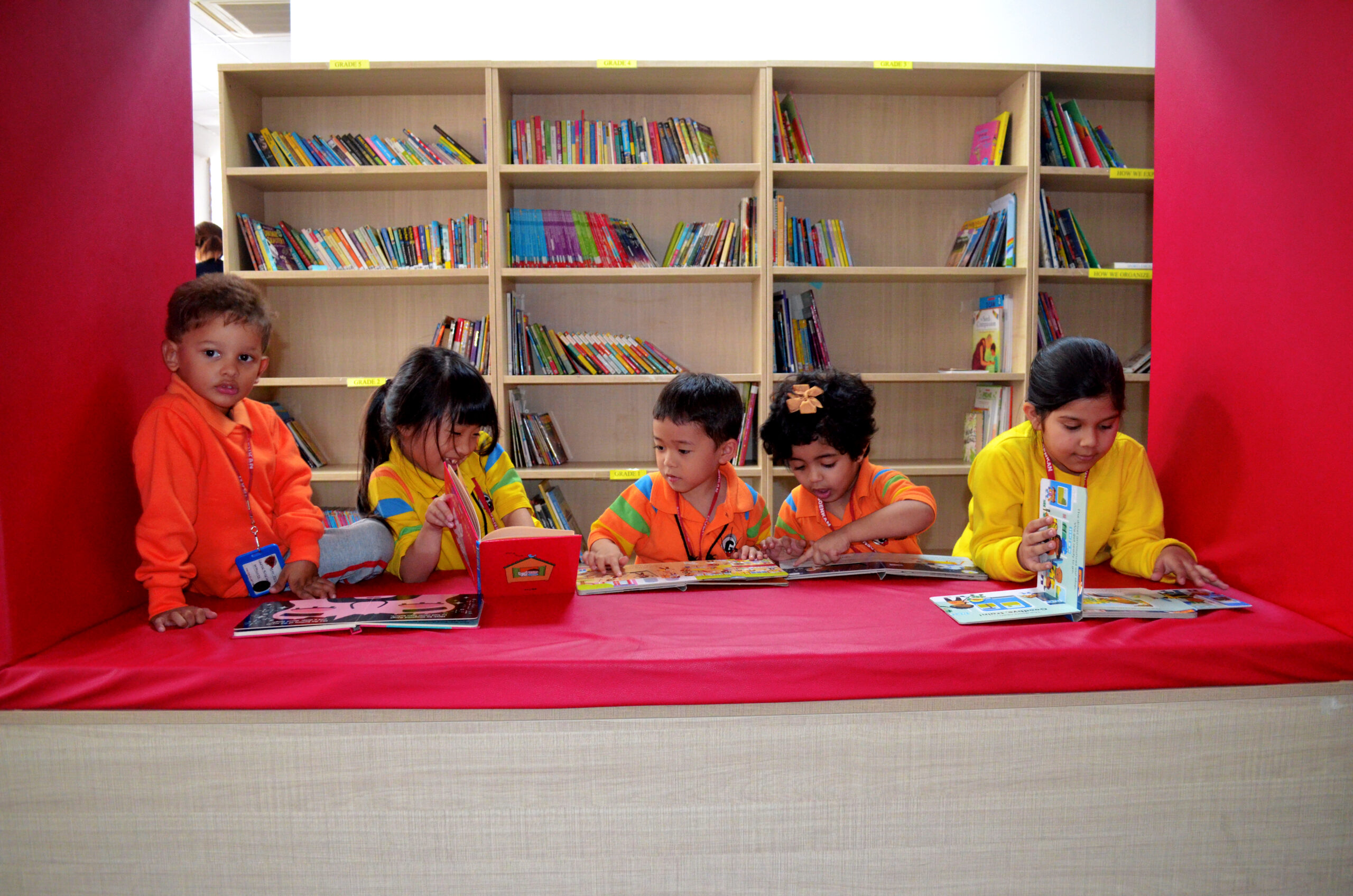Library
 A library is a curated collection of sources of information and similar resources, selected by experts and made accessible to a defined community for reference or borrowing, often in a quiet environment conducive to study. It provides physical or digital access to material and maybe a physical location or a virtual space, or both.
A library is a curated collection of sources of information and similar resources, selected by experts and made accessible to a defined community for reference or borrowing, often in a quiet environment conducive to study. It provides physical or digital access to material and maybe a physical location or a virtual space, or both.
The school library plays a central role in any school by being a hub of knowledge and a storehouse for information. It plays a significant role in the life of a student. The role of a librarian has grown with the change and advancement in technology. They are now known as Media Resource Specialists.
At GD Goenka Global, we encourage a love for reading, both for the sheer joy of it and because it is the most useful technological tool in the student’s range of skills. Our library not only has a vast range of tangible books but goes beyond; offering digital media content, online database, films and Epic e-library with more than 35000 titles. Our library also houses quiet story-telling corners. The state-of-the-art Library Management Software provides student access to the library resources online.
For IB schools, the library is its vibrant heart. The IB expects the school library “to play a central role in the implementation of the programme(s)”. It should act as a stepping stone in which students are supported in their journey towards developing self-confidence and academic prowess.
IB PYP is based on transdisciplinary themes which have global significance and are explored using knowledge from six subject areas as well as skills with a powerful emphasis on inquiry. Students need to do research to find answers to the questions during the process of inquiry for their ongoing unit of inquiry. The library plays a central role by procuring and providing a range of resources both print and digital, from Grade Nursery to Grade 5, to support the inquiry.
The library in an International school is a centre for each facilitator to collaborate and plan their units. In the library, students learn how to connect the attributes of IB learner profile, approaches to learning skills and concepts to their Units of Inquiry. IB librarians plan various learning engagements to encourage the students to read and reflect. These planned sessions help learners not only to be a good reader but also to think critically and reflect on their reading. They can take ownership of the same and share their review confidently. With technology finding its way to the hands of our children, it’s important to teach them Digital Citizenship (Common Sense Media Guidelines) as a part of their library classes.

BORROWING POLICY:
- The library offers an automated library system.
- Student Members may borrow one fiction and one non-fiction book or two non-fiction books at a time. They cannot borrow two fiction books at one time.
- Faculty Members, once registered, may borrow books and the lending duration is usually one week only.

BORROWING PERIODS:
| Resource | Number | Borrowing period |
| Books from General Collection | 2 | 2 weeks |
| Reference books and Material | 1 | Overnight |
| Electronic Resources | Only In-house | |
| Magazines and Newspapers | 2 | Only old issues, for 3 days |
| Maps | For the duration of one teaching period only. |

LIBRARY PROGRAMMES & EVENTS:
Each year we celebrate ‘International School Library Day’, ‘Library Week’ and various well known Authors’ birthdays to create awareness and generate a love for reading. Every month we organise programmes such as Story Telling, Assemblies, Book Talks, Creation of Big Books and the children design theme-based scrapbooks on their Units of Inquiry.
USAGE
If a borrowed book is lost or damaged whilst in the possession of a member, the member is required to replace the latest edition of the same book.
EXPECTED BEHAVIOUR:
Members are expected to take care of the library and its resources in the following ways:
- Handle library materials with clean hands and due care. Tearing or mutilating the pages from print resources or any damage to electronic resources will be viewed seriously .
- Return library materials in the same condition as you received them. Handle them gently. Be extra careful by not putting any pen or pencil mark, highlight or underline in books.
- Leave books upright and firmly supported on shelf when shelving or retrieving in their correct location
- Maintain a very quiet atmosphere inside the library.
- Finally, when leaving the School, members must return all resources, clear dues, if any, and collect a No Dues Certificate from the library.
Being an IB PYP school we believe in empowering students to be critical thinkers, enthusiastic readers, skilful researchers and ethical users of information.

